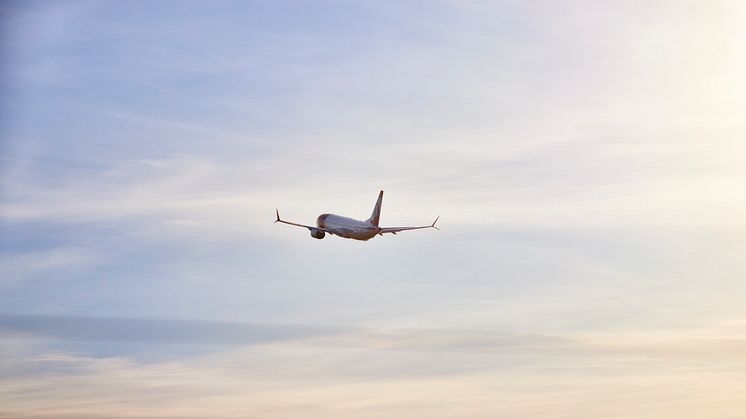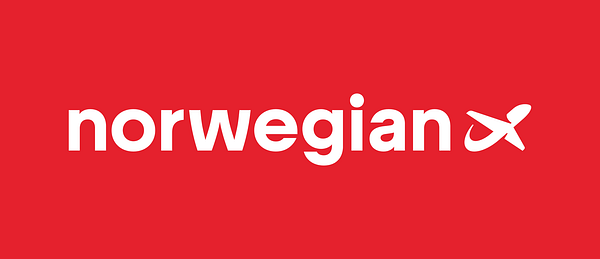
Press release -
Norwegian group with record of 2.85 million passengers in July
In July, Norwegian had 2,526,093 passengers while Widerøe had 331,035, totalling 2,857,128 for the group. For Norwegian, this represents a passenger growth of 9 percent from July last year and the highest number of passengers since 2019. Unit revenue equalled the record figure from July last year.
“I am very pleased with the incredible job all our colleagues have been doing during the busiest travel month of the year. Their hard work is reflected across all our numbers, including a record high number of passengers who have chosen to travel with the group. For Norwegian, I am particularly pleased that we that we delivered an improved load factor versus last year while at the same time increasing capacity by 10 percent. We are excited to see a solid booking momentum for August and further into the autumn season,” said Geir Karlsen, CEO of Norwegian.
Norwegian’s capacity (ASK) was 4,068 million seat kilometres, up 10 percent from the same period last year. Actual passenger traffic (RPK) was 3,763 million seat kilometres, an increase of 10 percent from July 2023. Load factor increased by 0.1 percentage point from July 2023 to 92.5 percent, an increase of more than 8 percentage points from the previous month. In July, Norwegian operated with a regularity, meaning share of scheduled flights taking place, of 99.5 percent. The punctuality, meaning share of flights departing within 15 minutes of scheduled time, was 67.6 percent, down 5.6 percentage points from July last year. However, 93 percent of all flights arrived within 60 minutes of scheduled arrival time. During July, European air space was heavily congested with several air traffic control (ATC) restrictions. This resulted in a lower than usual punctuality across European airlines. The airline operated an average of 87 aircraft in July.
Strong month for Widerøe
Widerøe delivered strong traffic numbers for the month of July with a significant improvement from last year. Load factor for the regional airline increased by 4 percentage points compared to July last year, resulting in a load factor of 83.5 percent.
“We are pleased with Widerøe’s continuing positive performance. This July Widerøe had a record high load factor for the month of July. This demonstrates that passengers appreciate the consistent high level of service our Widerøe colleagues are delivering. We look forward to continuously improving the travel experience across the entire Norwegian group for all our passengers”, said Geir Karlsen, CEO of Norwegian.
For Widerøe the capacity (ASK) in July was 201 million seat kilometres. The actual passenger traffic (RPK) was 168 million seat kilometres, while the load factor was 83.5 percent, up 4 percentage points from July last year.
Separate press release on Widerøe’s traffic figures is found at the Widerøe media centre. (In Norwegian only)
Topics
Categories
About Norwegian
The Norwegian group is a leading Nordic aviation company, headquartered at Fornebu outside Oslo, Norway. The company has over 8,200 employees and owns two of the prominent airlines in the Nordics: Norwegian Air Shuttle and Widerøe’s Flyveselskap. Widerøe was acquired by Norwegian in 2024, aiming to facilitate seamless air travel across the two airline’s networks.
Widerøe’s Flyveselskap, Norway’s oldest airline, is Scandinavia’s largest regional carrier. The airline has more than 3,500 employees. Mainly operating the short-runway airports in rural Norway, Widerøe operates several state contract routes (PSO routes) in addition to its own commercial network. In 2023, the airline had 3.3 million passengers and a fleet of 48 aircraft, including 45 Bombardier Dash 8’s and three Embraer E190-E2's. Widerøe Ground Handling provides ground handling services at 41 Norwegian airports.
The Norwegian group has sustainability as a key priority and has committed to significantly reducing carbon emissions from its operations. Among numerous initiatives, the most noteworthy is the investment in production and use of fossil-free aviation fuel (SAF). Norwegian strives to become the sustainable choice for its passengers, actively contributing to the transformation of the aviation industry.


